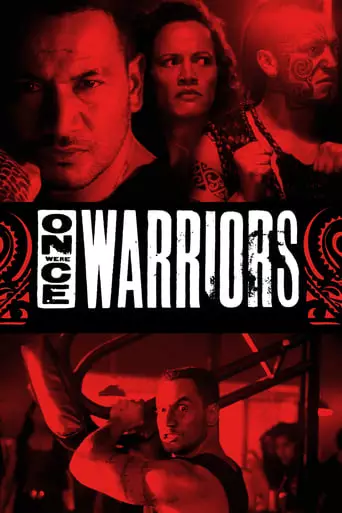A drama about a Maori family living in Auckland, New Zealand. Lee Tamahori tells the story of Beth Heke’s strong will to keep her family together during times of unemployment and abuse from her violent and alcoholic husband.
Once Were Warriors is a 1994 New Zealand drama directed by Lee Tamahori, adapted from Alan Duff’s 1990 novel. The film portrays the Heke family, an urban Māori household in South Auckland grappling with poverty, alcoholism, and domestic violence. At its core is Jake The Muss Heke, a volatile patriarch whose actions profoundly impact his family’s dynamics.
Beth Heke, Jake’s wife, hails from a traditional Māori village but has adapted to urban life. Their five children—Nig, Boogie, and three others—are caught in the turmoil of their parents’ troubled relationship. Jake’s unemployment leads him to spend his days drinking with friends, often resulting in violent outbursts. Beth endures these episodes, reflecting the complex interplay of love and fear in their marriage.
Their eldest son, Nig, seeks belonging by joining a gang, enduring a brutal initiation to gain acceptance. His younger brother, Boogie, is placed in foster care due to the home’s instability. The family’s struggles highlight the broader challenges faced by Māori communities, including the erosion of cultural identity and the impact of colonialism.
Themes Explored in the Film
- Cultural Disintegration: The film examines the erosion of Māori culture in urban settings, portraying the loss of traditional values and the challenges of cultural preservation.
- Domestic Violence: It offers an unflinching look at domestic abuse, illustrating its devastating effects on family members and the cycle of violence.
- Identity and Belonging: The narrative explores characters’ struggles with self-identity and the search for community, as seen in Nig’s gang involvement.
- Colonial Legacy: The film reflects on the lasting impacts of colonialism on indigenous populations, particularly the Māori, affecting their social structures and personal identities.
Impact of the Movie
Upon its release, Once Were Warriors became New Zealand’s highest-grossing film, surpassing even Jurassic Park in box office earnings. Critically acclaimed for its raw portrayal of Māori life, the film sparked discussions on domestic violence and cultural identity. Its unflinching depiction of societal issues resonated both locally and internationally, earning it numerous awards and solidifying its status as a significant work in New Zealand cinema.
10 Detailed Reasons to Watch Once Were Warriors
- Authentic Cultural Representation: The film provides a genuine portrayal of Māori life, offering insights into their traditions and struggles.
- Powerful Performances: Rena Owen and Temuera Morrison deliver compelling performances, bringing depth to their complex characters.
- Unflinching Social Commentary: It addresses pressing social issues like domestic violence and poverty with honesty and courage.
- Cinematic Excellence: The film’s direction and cinematography effectively convey the gritty reality of urban Māori life.
- Emotional Depth: The narrative delves into the emotional complexities of its characters, eliciting empathy and reflection.
- Cultural Education: Viewers gain a deeper understanding of Māori culture and the challenges faced by indigenous communities.
- Critical Acclaim: The film has received numerous awards and positive reviews for its storytelling and performances.
- Thought-Provoking Themes: It encourages viewers to reflect on issues of identity, belonging, and the impact of colonialism.
- Impactful Storytelling: The narrative is both engaging and enlightening, leaving a lasting impression.
- Historical Significance: As a landmark in New Zealand cinema, it offers a window into the country’s cultural and social landscape.
How You Will Feel After Watching Once Were Warriors (1994)
After viewing Once Were Warriors, you may experience a range of emotions:
- Disturbed: The film’s unvarnished depiction of domestic violence and societal issues can be unsettling.
- Empathetic: The characters’ struggles may evoke deep sympathy and understanding.
- Reflective: It prompts contemplation on cultural identity, social issues, and personal resilience.
- Moved: The emotional depth of the story may leave a lasting impact, stirring feelings of compassion and introspection.
In summary, Once Were Warriors is a powerful and thought-provoking film that offers an unflinching look at the challenges faced by a Māori family. Its authentic portrayal of cultural and social issues, combined with compelling performances, makes it a significant work in New Zealand cinema.

